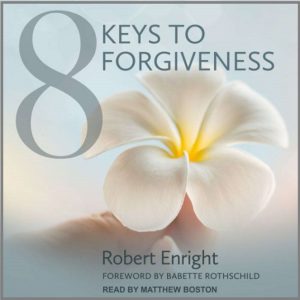Tagged: “Justice”
Why You Cannot Always Trust the Scientific Data on Forgiveness
When I teach a graduate seminar on the psychology of forgiveness at the University of Wisconsin-Madison, we as a class frequently read scientific studies with the word “forgiveness” in the title and then we commence critiquing the science that is reported. Too often, we find that what is supposed to pass for forgiveness actually is quite suspect and the conclusions should not be taken at face value. For example, when we forgive, we do so toward persons, not situations. To forgive is to willingly decide to be good to those who have not been good to the forgiver. The one who forgives has been treated unjustly by a person or persons and tries to reduce negative thoughts, feelings, and behaviors and increase positive thoughts, feelings, and behaviors toward the offending person. Forgiveness does not mean to excuse, to necessarily forget, to necessarily reconcile, or to abandon justice. So, if a scientist, as an example, has a scale of “forgiveness” that asks the participants if they forgive situations (not persons, but situations), then this researcher is not studying forgiveness at all in this context, regardless of how many times the word is used.

Image by Pexels.com
In this essay, I want to critique one study (out of four in the article mentioned below) which appeared in this published paper:
Luchies, Laura B. and Eli J. Finkel, James K. McNulty and Madoka Kumashiro, “The Doormat Effect: When Forgiveness Erodes Self-Respect and Self-Concept Clarity,” Journal of Personality and Social Psychology (2010), vol.98, no. 5, 734-749.
In their first study of the paper, they presented a “forgiveness” scale to newly married couples. The researchers continued to assess the couples in forgiveness, self-respect, and the degree to which each member of the couple showed “agreeableness” toward one another. The assessments lasted for five years and the conclusions by the authors are as follows:
“For participants who tend to forgive their spouse, the trajectory of self-respect over time depended on the spouse’s level of agreeableness…….The doormat effect subhypothesis was fully supported in that, for high forgiveness individuals whose spouse was low in agreeableness, greater forgiveness predicted significantly diminished self-respect over time.”
In other words, beware of forgiving unless the one you are forgiving has an agreeableness with you. Otherwise, you tend to devalue yourself and so forgiveness is dangerous.
Here is a critique of that study, that should give the reader of it pause in accepting the conclusions:
The forgiveness scale had nothing to do with actually forgiving the spouse because there were five vignettes that were made up. These were hypothetical situations that did not necessarily occur within the marriage, such as “failing to mail some important papers for the self, making a mess of the house.” There are two problems here: 1) The researchers were not assessing actual offenses and so there was no true construct of forgiveness toward the spouse being measured and 2) there were only five made-up stories and as you can see in the two examples above, they hardly constituted major violation of ethics for the most part.
The most serious problem in this study is the fact that the researchers never discerned what each participant meant by the word “forgiveness.” Some of the participants probably, when asked, would have said that to forgive is to “just let the incident go.” Others might have said that to forgive is to see the justification for what happened, so it really was not an injustice at all because of an extenuating circumstance. We, as the readers, just have no idea what each person means by the word “forgiveness,” so we cannot be sure if each participant was answering the questionnaire correctly. Even if many were answering it correctly, we still need to remember that these are made-up scenarios, and people may respond very differently to the hypothetical than to the real injustices against them.
Is there a “doormat” effect to forgiveness? If there is, it has yet to be accurately demonstrated. We should not give forgiveness a bad name by ambiguous science.
![]()
Power Versus Love
Current political norms seem to have power as a way to achieve objectives. In light of this, perhaps it is time to revisit the contrast between power and love. The following is an excerpt from the book, 8 Keys to Forgiveness (R. Enright, 2015).
Here are 10 pairs of contrasting statements differentiating between power and love, which may be useful in helping you forgive:
Power says, “Me first.”
Love asks, “How may I serve you today?”
Power manipulates.
Love builds up.
Power exhausts others.
Love refreshes them.
Power is rarely happy in any true sense.
Love understands happiness.
Power is highly rewarded in cultures that worship money.
Love considers money to be a means to an end, not an end itself.
Power steps on others.
Love is a bridge to others’ betterment.
Power wounds—even the one who exerts the power.
Love binds up the wounds, even in the self.
Power is joyless even when it is in control.
Love includes joy.
Power does not understand love.
Love does understand power and is not impressed.
Power see forgiveness as weakness and so resentments might remain.
Love sees forgiveness as a strength and so works to eliminate resentment.
Power rarely lasts because it eventually turns inward, exhausting itself. Look at slavery in the United States, or the supposedly all-powerful “Thousand-Year Reich” of the Nazis, or even the presence of the Berlin Wall, intended to imprison thought, freedom, and persons . . . forever. Love endures even in the face of grave power against it.
![]()
In Memoriam: A Tribute to Our Long-Time Board Member and Friend, Msgr. John Hebl
On March 11, 2024, our International Forgiveness Institute (IFI) lost our Board Member and friend, Msgr. John Hebl, who passed away at his home in Oxford, Wisconsin. He joined our IFI in 1994 and gave us 30 years of wonderful service with his wisdom and passion for forgiveness. He is an important figure in forgiveness science because he was the very first person, in the entire history of psychology, who did an empirically-based, peer-reviewed published study on a forgiveness intervention. In that article, published by the American Psychological Association’s journal, Psychotherapy, he screened 24 elderly women  who suffered injustices, mostly within the family and friendship contexts. He randomized the women into the experimental group, in which he brought them through our Process Model of Forgiveness, and the control group, in which social issues were discussed, such as the influence of senior citizens on society, attitudes toward aging, and family conflicts. Each lasted for eight sessions, once a week, for about an hour each time. Findings showed that the participants in the experimental group grew statistically significantly more than the control group participants in forgiving people who have hurt them. Those in the experimental group also grew statistically significantly more than the control group in their willingness to forgive others in general. The reference to this historical work is this:
who suffered injustices, mostly within the family and friendship contexts. He randomized the women into the experimental group, in which he brought them through our Process Model of Forgiveness, and the control group, in which social issues were discussed, such as the influence of senior citizens on society, attitudes toward aging, and family conflicts. Each lasted for eight sessions, once a week, for about an hour each time. Findings showed that the participants in the experimental group grew statistically significantly more than the control group participants in forgiving people who have hurt them. Those in the experimental group also grew statistically significantly more than the control group in their willingness to forgive others in general. The reference to this historical work is this:
Hebl, J., & Enright, R. D. (1993). Forgiveness as a psychotherapeutic goal with elderly females. Psychotherapy: Theory, Research, Practice, Training, 30(4), 658–667. https://doi.org/10.1037/0033-3204.30.4.658
Msgr. John was a dynamic, busy person as he led a Catholic parish and, at the same time, pursued successfully a doctoral degree in counseling psychology at the University of Wisconsin-Madison, where he did the groundbreaking research described above. Prior to this, he was a Brigadier General in the United States military service. I used to kid him, saying, “We all will have to address you as Father, Doctor, General Hebl!”
Rest in peace, Msgr. Hebl. Thank you for being a pioneer in forgiveness research, for serving people all these many years, and for contributing to a better world.
![]()
Finding Meaning As We Suffer
In recent months, the theme of suffering and finding meaning in that suffering has emerged more and more because of current events in the world, including the conflicts in Ukraine, in Israel and Gaza, and in Nigeria as examples. To reflect on the importance of finding meaning in suffering, we are reposting an essay first published here at the International Forgiveness Institute on October 15, 2013:
Let us start with the prophetic words of Shakespeare’s Macbeth, as he mourns the passing of Lady Macbeth in Act 5, Scene 5:

Image by Pexels.com
Tomorrow, and tomorrow, and tomorrow,
Creeps in this petty pace from day to day
To the last syllable of recorded time,
And all our yesterdays have lighted fools
The way to dusty death. Out, out, brief candle!
Life’s but a walking shadow, a poor player
That struts and frets his hour upon the stage
And then is heard no more. It is a tale
Told by an idiot, full of sound and fury,
Signifying nothing.
There is no meaning in life and therefore there is no meaning in suffering. To live and to suffer are meaningless. Yet, experience tells us that this kind of thinking is a dangerous illusion. Did Martin Luther King, Jr. have no meaning when he wrote his Letter from the Birmingham jail? Did Maximilian Kolbe see no meaning in life when he asked the Nazis to let him take the place of a condemned man who had a family? Whether one’s beliefs are in God or in random variations generated by mutations, we are either made for or have evolved toward finding meaning in our life. The skeptic would say that my point is a happy illusion: Yes, we need to believe this, but we do so just to stay alive; it is adaptive to think fairytale thoughts.
Yet, what else in nature can you identify that is so very important and at the same time is an illusion? I can think of nothing. If finding and having meaning is tied to our well-being, then there must be something to it. The psychiatrist Viktor Frankl, who survived Auschwitz (which Maximilian Kolbe chose not to survive for a higher good of protecting another person), observed this: Only those who survived Auschwitz found meaning in the profound suffering endured there. Those who found meaninglessness died. Finding meaning in this case was tied to positive, concrete outcomes. There was a need (to find meaning) that was fulfilled (surviving and even thriving). Can you think of any other real need that is not tied to something real that can fulfill it? If not, then it seems reasonable to say that we have real needs with real fulfillments and finding meaning and achieving the state of thriving are concretely, really linked together without illusion.
When we are treated deeply unjustly by others, we suffer. If we have come, through wisdom, to know the meaning of life, then we will find meaning in our suffering. If we find meaning in both life and suffering, we have the foundation to forgive well and to survive well the cruelty against us.
Sound and fury, signifying nothing? Please be careful in so concluding.
![]()
Is Forgiveness Always Appropriate When Faced with Serious Injustices?
Is forgiveness always appropriate when there is a deep unfairness? First, let’s examine the response a little more. When we ask this question, are we inquiring about a specific person or about the virtue of forgiveness itself? Here is where there is a crucial difference.

Image by Pexels.com
Since forgiveness is a moral virtue, we should ask our question of all virtues if our attention is on the virtue itself. As we broaden our view to focus on all moral virtues, we can consider the question’s opposite: For example, when is a quest for justice, one of the moral virtues, not appropriate? Put another way, can you picture a situation in which you might be arrested for intentionally acting in a just way? Would people condemn themselves for acting fairly? If not, then it appears to be the case that justice is always fitting in every situation. Is there ever a time when patience is inappropriate? How about showing kindness? I can hear someone say something like, “Well, I won’t be kind if someone is hitting me over the head with a frying pan.” I agree that your leaving the abuse is good because it is a protection for you. As a second possible response, you certainly are entitled to attempt removing the frying pan from the person’s grasp. You can act in either situation with kindness. Kindness is appropriate even in this instance. If kindness is used with other virtues (justice, courage, temperance) to help save the individual from doing the head-banging, then that is acceptable in the sense of being morally good.
My argument is that since all virtues are centered on the morally beneficial aspects of human interaction, then acting morally is always appropriate, and practicing forgiveness is one of these moral virtues.
The second aspect of the question (Is forgiveness always appropriate?) asks about the psychological suitability of practicing the virtue for any given individual. Does forgiveness make sense for any particular person all the time? This time, the answer is no, it is not always appropriate for the following reasons: a) the offended person may be too shocked by what happened to be ready to offer forgiveness at this time; b) the offended person may need to learn more about forgiveness to exercise forgiveness properly rather than some false form of it; and c) forgiveness is a supererogatory virtue that is not demanded of any one person at a particular time because it is not a virtue that society demands. It is the person’s decision to extend forgiveness or not on any particular occasion.
Is forgiveness always appropriate?
Yes, if we are talking about the quality of this term, specifically its quality of being a moral virtue.
Must, then, all people turn immediately to forgiveness when treated unjustly?
No, if we are discussing the psychological makeup of a certain individual, including both this person’s degree of hurt and understanding of forgiveness, as well as the specifics of the injustice, such as its gravity, duration, and time since it happened. Some people need time to be angry, to sort out what forgiveness is, and then move forward with it when the person is ready.
![]()



